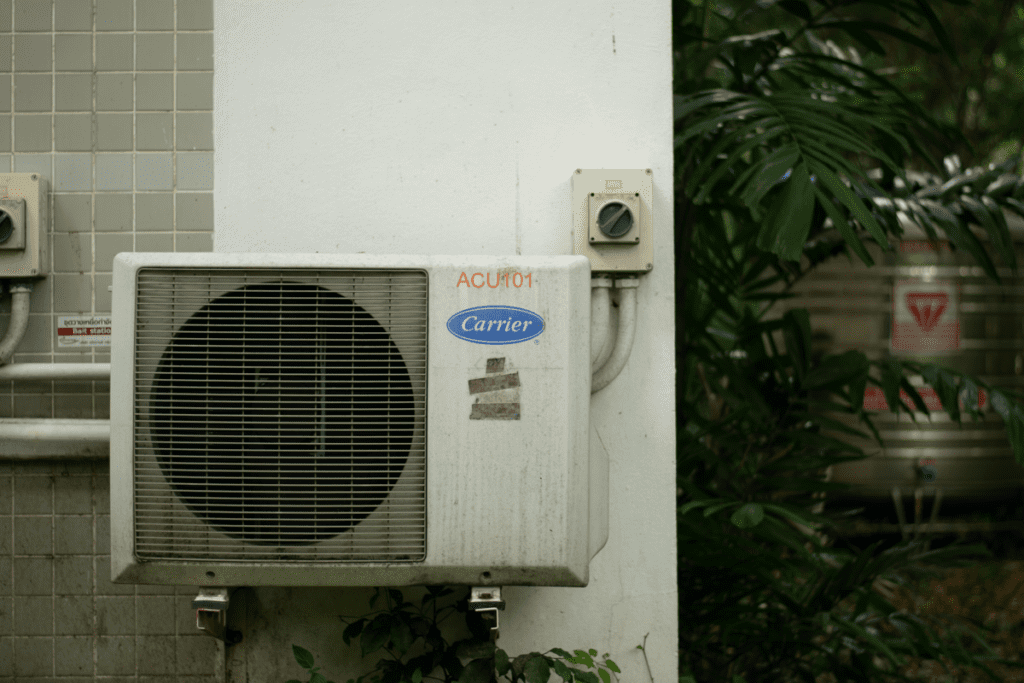Blog
Why is Your Air Conditioner Rattling?

If you’ve noticed your air conditioner making a rattling noise, it can be both frustrating and concerning. These sounds are not only annoying but may also signal underlying issues that can affect the efficiency and lifespan of your AC unit. Identifying the source of the noise early on is crucial to preventing further damage and ensuring your system runs smoothly. In this guide, we’ll explore the common causes of rattling noises in air conditioners and provide practical solutions to address them. By following these tips, you can keep your AC quiet and functioning optimally.
Debris in the Outdoor Unit
One common cause of rattling noises in your air conditioner is debris in the outdoor unit. Over time, leaves, twigs, dirt, and other debris can accumulate around or inside the unit. This can cause rattling sounds as the debris is blown around by the fan or makes contact with moving parts. Not only does this lead to unwanted noise, but it can also reduce the efficiency of your AC unit by obstructing airflow or damaging components.
Solution:
- Regular Inspection: Periodically check the area around your outdoor unit to ensure it’s free from debris, especially during seasons when leaves and branches are more likely to accumulate.
- Cleaning: Carefully remove any debris from the exterior of the unit. For internal cleaning, it’s recommended to consult a professional to avoid damaging delicate components.
- Preventive Measures: Trim vegetation and clear away any obstructions that might fall into the unit. Keeping the area around the unit clear will help prevent debris buildup in the future.
By staying proactive with regular checks and cleaning, you can reduce the chances of debris causing rattling noises in your AC unit.
Loose or Damaged Fan Blades
Another potential cause of rattling noises is loose or damaged fan blades. The fan blades in your air conditioner are responsible for circulating air through the system, but over time, they can become misaligned, bent, or even break. When this happens, the blades may strike other internal components, creating a rattling sound. This issue can often arise from wear and tear, improper installation, or physical damage.
Solution:
- Inspection: With the unit turned off, visually inspect the fan blades for any signs of damage or misalignment. Look for cracks, bends, or anything that might interfere with their movement.
- Professional Assessment: If you notice any issues with the fan blades, it’s important to call a certified HVAC technician. We can realign or replace the blades to restore your system to proper working condition.
Loose Screws or Panels
Loose screws or panels are another common cause of rattling noises in your air conditioner. Over time, the constant vibrations of the unit during operation can cause screws and panels to loosen, leading to rattling sounds. While this issue may seem minor, it can worsen if left unaddressed, potentially damaging the unit or causing further noise-related problems.
Solution:
- Visual Check: Turn off the power to your AC unit and inspect it for any loose screws or panels. Pay special attention to the outer casing and interior components.
- Tightening: If you find any loose parts, use the appropriate tools to tighten them securely. Be sure not to overtighten, as this can cause damage to the components.
- Regular Maintenance: Schedule regular inspections to ensure that all parts remain secure, preventing future rattling and maintaining optimal unit performance.
Faulty or Worn-Out Motor
A malfunctioning or aging motor is another common culprit behind rattling noises in your air conditioner. Motors that are worn out or have internal components that are no longer functioning properly can create a variety of sounds, including rattling. The motor’s components, such as bearings, may become misaligned or worn down, leading to abnormal vibrations and noise. If ignored, motor issues can cause more significant damage to the system and lead to costly repairs.
Solution:
- Professional Diagnosis: If you suspect that your AC’s motor is the source of the rattling noise, it’s best to have it professionally inspected. An HVAC technician can check for issues like worn bearings or misalignment that may not be visible to the naked eye.
- Timely Replacement: If the motor is damaged or worn out, it’s crucial to replace it as soon as possible. Delaying motor repairs can result in more extensive damage to your air conditioner, leading to higher repair costs.
Dirty or Clogged Air Filter
A dirty or clogged air filter can lead to restricted airflow in your air conditioning system, causing the blower motor to overwork. This can result in rattling or vibrating noises, as the motor struggles to push air through the clogged filter. In addition to noise, a dirty filter can decrease your system’s efficiency and contribute to higher energy bills.
Solution:
- Regular Replacement: Change your air filter every 1-3 months, depending on the type of filter and usage. Regular replacement helps maintain optimal airflow and prevents unnecessary strain on your AC.
- Quality Filters: Choose high-quality filters that are designed to provide better airflow and capture more particles, ensuring your AC runs efficiently and quietly.
Ductwork Issues
Issues with your air conditioner’s ductwork can also lead to rattling sounds. Improperly sized ducts, damaged sections, or loose connections can restrict airflow or cause vibrations. These issues can result in air turbulence or noise, as the system struggles to push air through compromised ducts.
Solution:
- Professional Assessment: Have an HVAC technician inspect your ductwork for any signs of damage or improper sizing. They can evaluate airflow and identify areas that may be causing the rattling.
- Necessary Repairs: If any issues are found, it’s important to address them promptly. Repairs or replacements of damaged ducts, as well as ensuring proper duct sizing, will improve airflow and eliminate noise.
Final Thoughts on Pesky Rattling
Rattling noises in your air conditioner can stem from various causes, but addressing them promptly ensures a quieter, more efficient system. Regular maintenance, timely repairs, and professional assessments will help maintain your AC’s performance and extend its lifespan, keeping it running smoothly and quietly for years to come.
